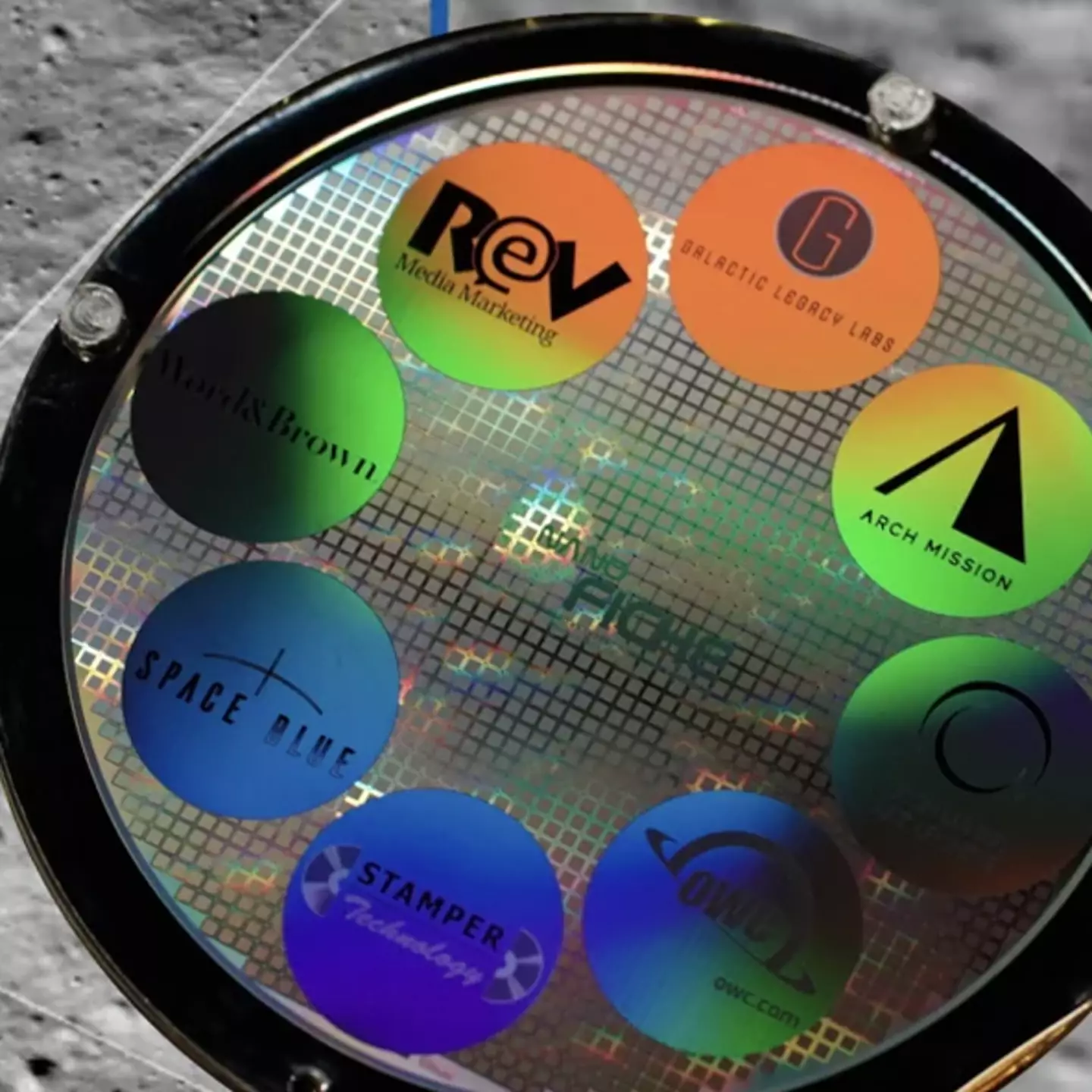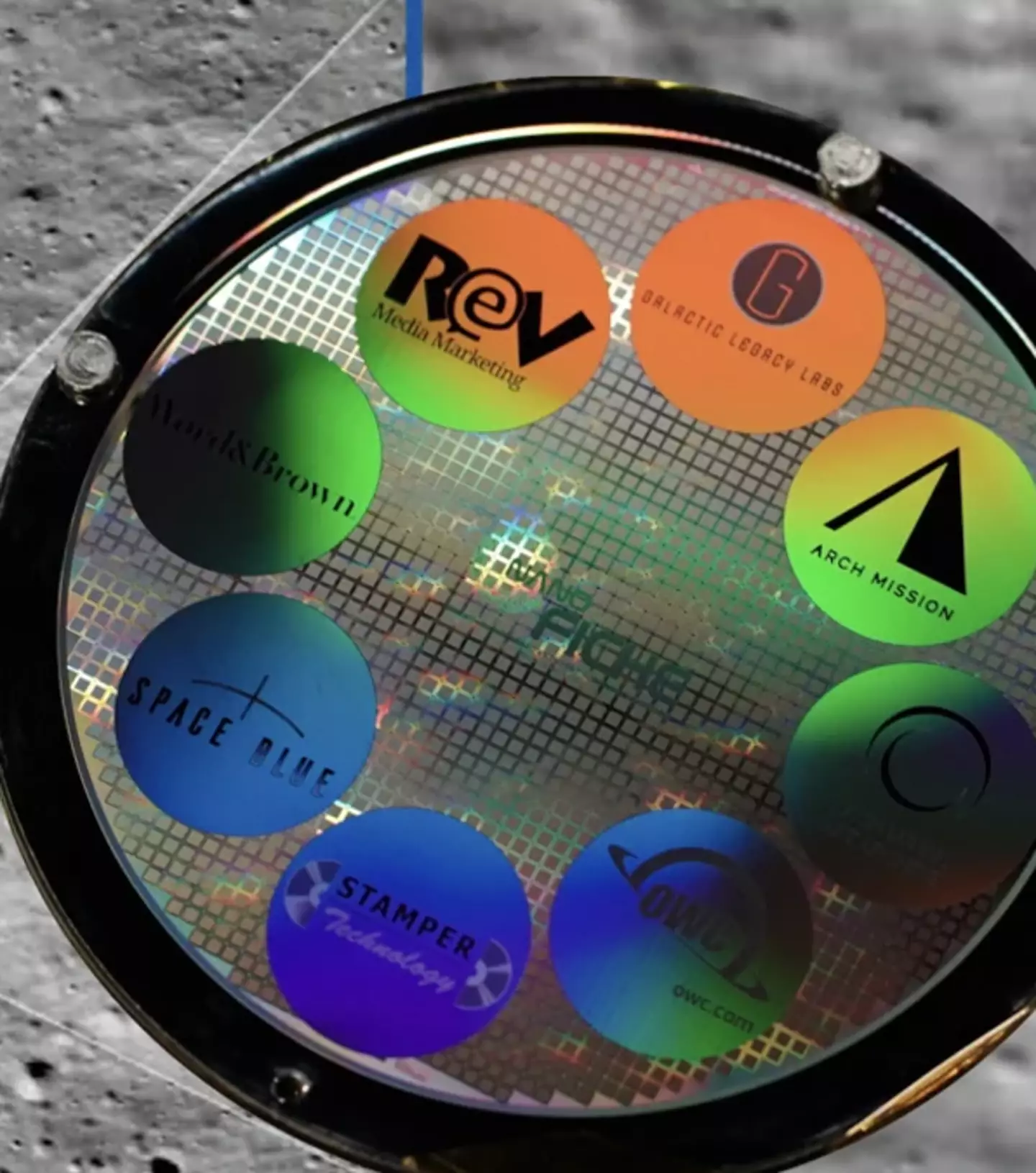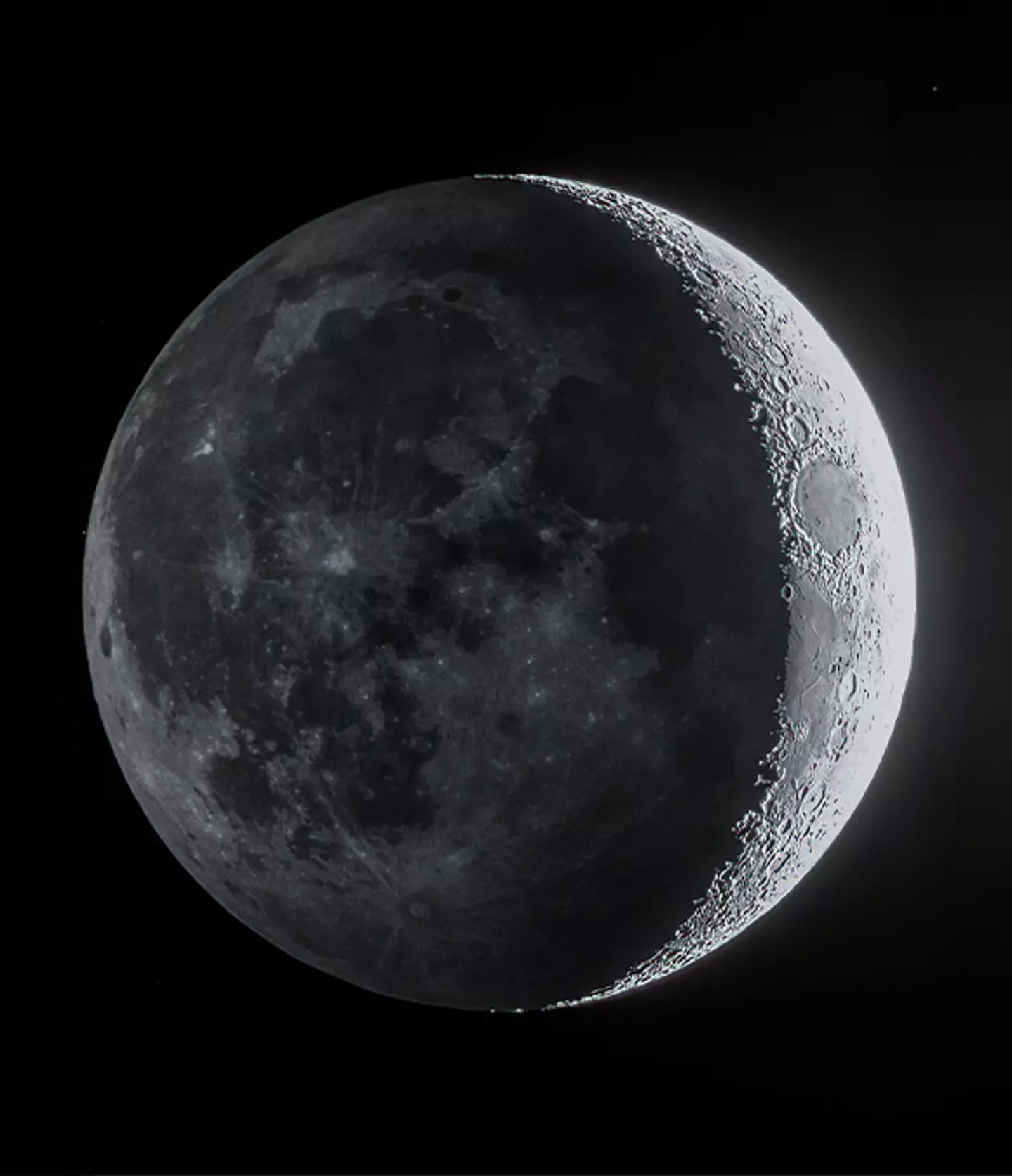
Humanity will not be forgotten thanks to a library on our moon.
This isn't your typical library with stacks of books and packed shelves scattered across the lunar surface (although that would be cool to imagine).
Instead, it is a digital collection of millions of pages worth of archives compressed into one disc.
In February 2019, Israel’s Beresheet spacecraft launched to the moon carrying what the mission planners vaguely referred to, at the time, as a time capsule. But, there was more to the story.
Advert

The timeless lunar library, known as the Galactic Legacy Archives, is a collection spanning 30 million pages of human knowledge and culture etched into a DVD-sized metal disc.
The data is stored on thin layers of nickel that are so tiny it requires a microscope to read them.
'Nickel never decays and never corrodes,' explained Nova Spivack, head of the nonprofit Arch Foundation, which is on a mission to preserve humanity's heritage for future generations.
The disc contains various media content including music and images, all of which a digital encoder to access.
Commenting on our message to the future, Spivack said: 'One of the primary evolutionary challenges that we face is amnesia about our past mistakes, and the lack of active countermeasures to repeating them.
'For the survival of our species, we need to find ways to raise our awareness of what worked and didn't work, and we need to ensure it is shared with the people of the future.'

If our planet is destroyed, say in a nuclear war, it's hoped that the archives will 'still be there,' so long as the moon still exists.
'We can now say for the first time in history that civilization will not be lost,' Spivack added.
According to Paul Davies, director of the Beyond Center for Fundamental Concepts in Physics at Arizona State University, the library acts as a symbol of mankind and is important for future missions in search of extra-terrestrial civilisations.
'It encourages people to reflect on humankind's place in the universe,' Davies stated.
'If we can leave records on the moon for a huge duration, maybe E.T. will have done the same.'
But in any case of important stored data, it's good to have backups.
That's why the Arch Foundation has a long-term mission to go beyond the moon and place Galactic Legacy Archives all throughout the solar system.